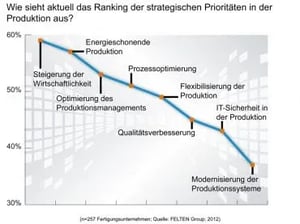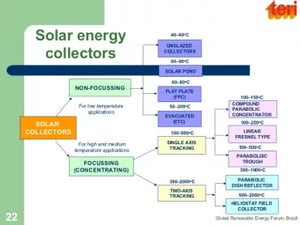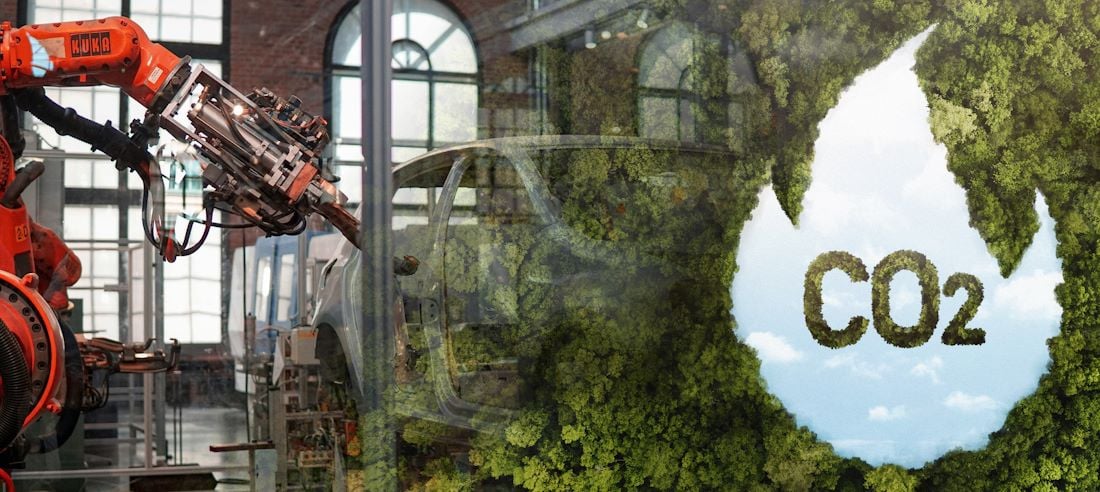Renewable energy has a positive connotation in society and business, that’s for sure. The Fukushima incidents have led to a run on renewable energy suppliers by private households in large parts of the western world. But what does the situation look like for industry? Do manufacturing companies meet their responsibility for taking action when everyone related to the sustainability field calls for a transition to 100% renewable energy?
Manufacturing accounts for one third of the world’s energy consumption. In view of countries like Sweden, which aims for 50% renewable energy generation by 2020 (shouldn’t be too hard for a country that already reached 45% in 2010), what is the contribution manufacturing can make? Energy efficiency for one thing and, because it is cheaper than renewable energy, most of the time industry focuses on that. However, to end the carbon era, we need both strategies – efficient processes, powered renewably. Let’s take a look at the ways industry can foster this transition to the renewable energy era and the reasons why this transition hasn’t happened yet.
In this blog article, I will introduce you to the forms of solar energy that are interesting to industry. At present, solar thermal energy is the leader. Photovoltaics, the most discussed form of solar electricity generation, is of course useful, but not for industrial purposes on a large scale. The area required to provide sufficient electricity would exceed the space on a factory roof considerably. Another form that I put low on the list is biomass for process heat generation. Apart from low-populated, broadly-wooded areas like Canada, biomass is not suitable to provide energy for industry in a sustainable way. (We shouldn’t forget that Europe was almost completely deforested 150 years ago, when wood was the only energy source for processes like melting iron; this is not a favorable vision to go back to, in my opinion. At the beginning of the industrial era, fossil fuels saved our forests…)
Concerning photovoltaics, however, initiatives like rent-a-roof could theoretically provide a solution given that prices drop in the medium term to become competitive with cheaper forms of renewables, namely hydro and wind power. In contrast to this, instead of generating electricity, using the sun to heat water is cheap and does not require much space. Simple solar heat collectors, on the one hand, are the easiest way to implement renewable energy generation in your factory. The pre-heated water will probably still need fossil energy to be converted into steam, but will generate savings anyway, both in emissions and in expenditures for energy. On the other hand, you can generate steam straight from the sun via concentrated solar power (CSP). But before we get to CSP applications in industry, I would like to mention a short, 8-page paper published by three scientists from the University of Dayton. Kissock, Pohlman and Smith completely put into perspective the assumptions I make on expensive photovoltaics generation. “Net-Zero Carbon Manufacturing at Net-Zero Cost” is the paper’s title, and it shows how to finance the necessary investments to achieve carbon neutral production entirely through energy savings.
What? Well, you win money by increasing energy efficiency and, once the measures to do so are amortized, you reinvest the annual savings in renewable energy generation equipment. It is so simple, and yet so revolutionary. It is written in clear terms and I strongly suggest reading the paper (pdf), or scanning through it, at least. The bottom line:
The savings realized from energy efficiency improvements are used to first make investments in onsite renewable energy, and subsequently to purchase Renewable Energy Credits. The result is that net- zero carbon emissions are achievable for most manufacturers at net-zero cost, in a manner that is consistent with manufacturing business practices.
There’s Always an Appropriate Solar Heat Technology
Electrical energy is easy to transport. Depending on conditions in your location, purchasing energy from a wind or hydro power provider can be cheaper than setting up your own wind turbine. However, thermal energy for process heat needs to be generated on the spot. You may be lucky enough to have your factory sitting on an exploitable geothermal source or within the small radius of a district heating network. If not, don’t worry, you’re still normal and yes, you can still generate your own heat renewably. Shirish Garud, for instance, is an expert in this field. He works for India’s teri institute and made a presentation about the possibilities available to different manufacturing sectors for using solar energy at the Global Renewable Energy Forum 2008 (PDF). With temperature requirements lying between 50° and 1200° Celsius, the manufacturing industry is as diverse as it can get. Are you a paper mill? Your pulp bleaching probably needs 70-90°C. If you are a steel producer, the situation is completely different. The requirement for rolling your material can easily exceed 900°C. But never mind, there’s a shoe for every foot. Different technologies are able to harness the sun differently, producing water and steam in a high range of temperatures. The following diagram illustrates this:
Biggest Challenges for Implementing Energy Efficiency, From Industry’s Point of View

productivity increase
energy saving production
product management optimization
process optimization
production flexibilization
quality improvement
IT security
modernization of production systems
A survey by the Felten Group (Link in German) of 257 manufacturers in Germany revealed that just behind making the company more profitable, the number two strategic priority is saving energy.
Learning of the high priority companies give to energy efficiency, the authors also asked about the biggest challenge on the way to energy efficient production. More than 70%, by far the biggest share of the interviewees, replied that implementing an operational energy management plan was the biggest challenge. Behind that, time pressure when planning and implementing energy saving measures ranked just before investment costs, development of strategic positioning and energy efficient process design. The last two challenges in the ranking are planning modernization of production machines and employee acceptance, at 43 and 30%. If you can read German, see the following graphic to better understand.
If they are so popular, why are measures to improve energy efficiency not always implemented as desired? Kissock, Pohlman and Smith named two reasons in the above-mentioned paper:
While some manufacturers may be willing to immediately implement all potential energy efficiency projects, most manufacturers implement just over 50% of the energy efficiency opportunities available to them (IAC Database, 2011). […] Two root causes are commonly cited for a low energy efficiency project implementation rate. First, many companies are either unwilling or unable to provide the necessary capital funding to implement some energy efficiency projects. While the vast majority of energy efficiency improvements can be realized with little to no upfront cost, some recommendations do require a substantial capital investment. Second, many plant managers fear energy efficiency projects will not perform as advertised. They worry the financial benefits may never materialize, and they worry about impact to other goals like production quantity and quality.
In my humble opinion, whether you are a paper, steel or whatever manufacturer, ask the process optimization consultant of your choice to set up a sophisticated energy management strategy and start saving money and the planet as soon as possible! The less energy your production consumes, the cheaper it gets to switch to a renewable provider! And if you love the sequenced approach by Kissock, Pohlman and Smith as much as I do, reinvest the money you save in renewable energy generation. Let me mention one more document to conclude the article, a big one from December 2010 with a shiny name: the UN-Energy report on “Renewable Energy in Industrial Applications”. It assesses the potential for the year 2050 and has a clear message:
Renewables are not cost competitive where fossil fuels are subsidised. They are, however, already cost competitive in many cases and many countries with unsubsidised fossil fuels. This is even more so where CO2 emissions carry a financial penalty that reflects their long-term economic and environmental impact.
Any doubts about which subsidies to cut now?
Further Reading
- Kissock, K., Pohlman, D., Smith, J. (2012): Net-Zero Carbon Manufacturing at Net-Zero Cost, PDF Link
- knowtheflow: “Environmentally Harmful Subsidies: Behind the Scenes of a $400 Billion Waste”
- Shirish Garud, “Solar Thermal Energy Technologies for Industrial Applications – India’s Experience”, presentation held at Global Renewable Energy Forum, Brazil (2008), PDF link
- UN-Energy report on “Renewable Energy in Industrial Applications” (December 2010)
- Commercial brochure (PDF) by Kingspan Renewables with nice pictures of solar heat collectors and heat pumps for the UK market (PDF)
- Event: CSP Today (Sevilla, Spain), Concentrated Solar Thermal Power Summit, 13-14 November, Seville, Spain, www.csptoday.com/csp






